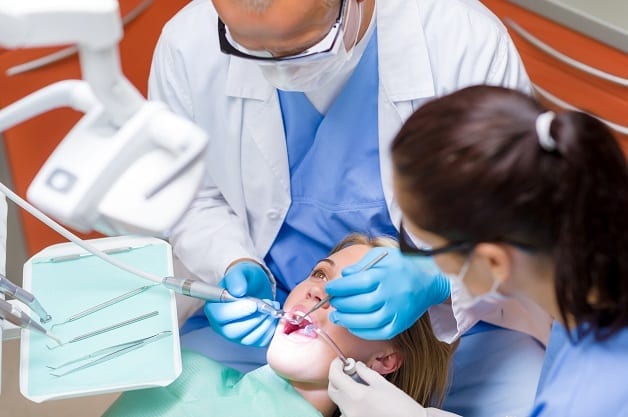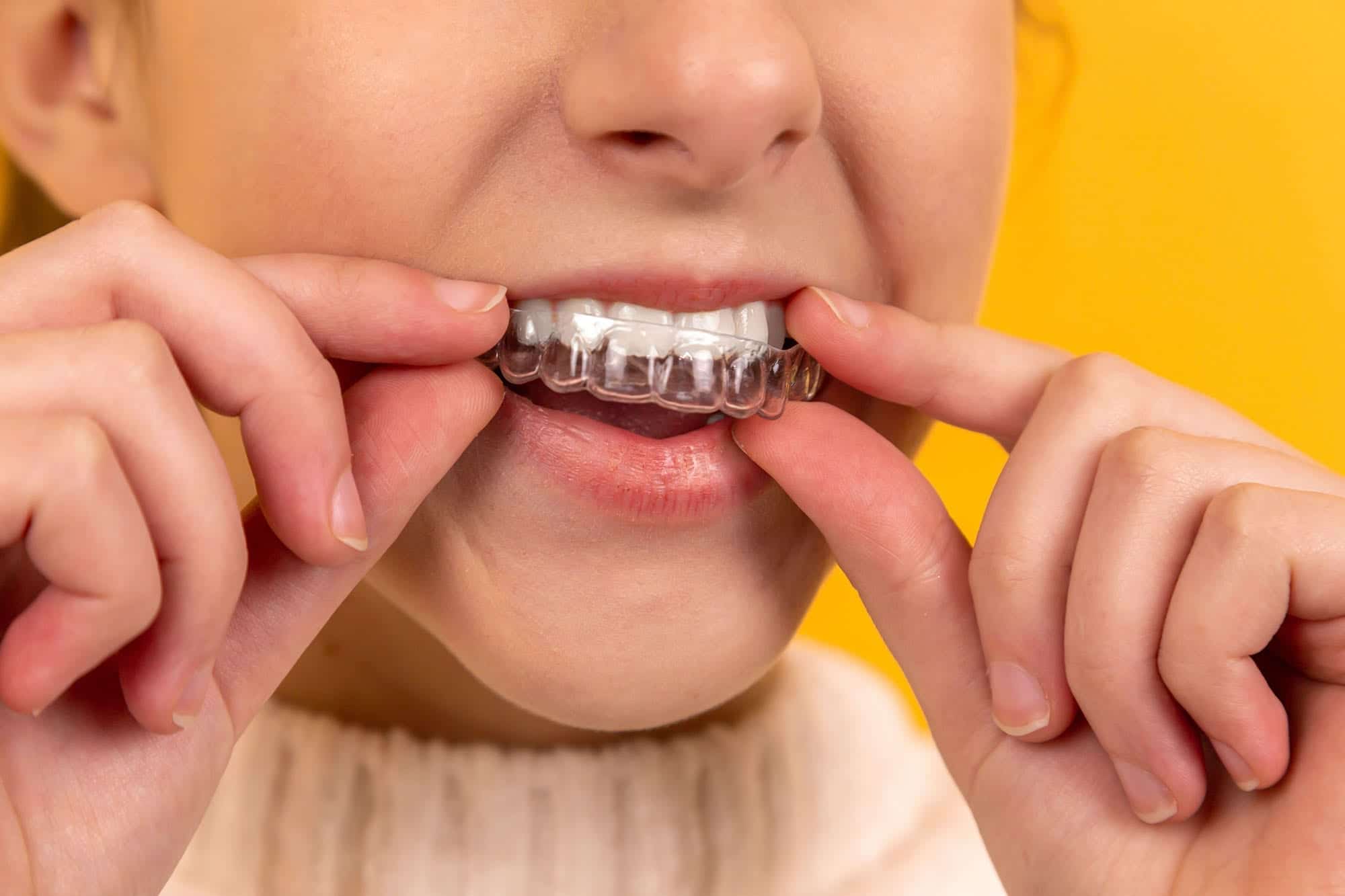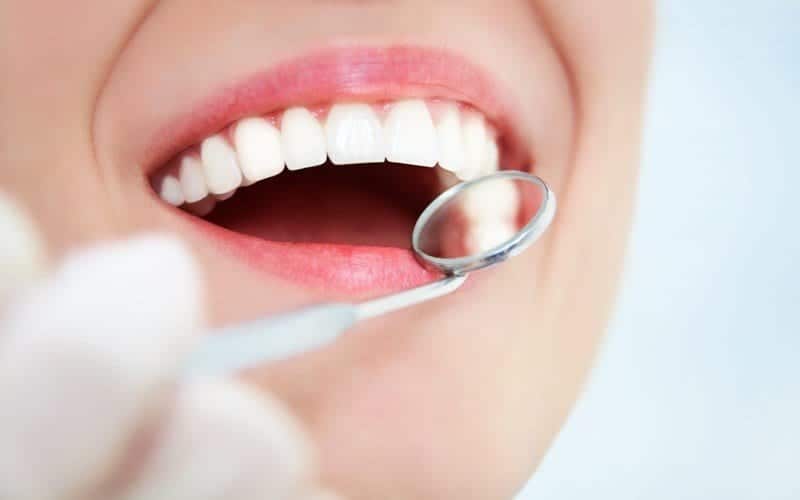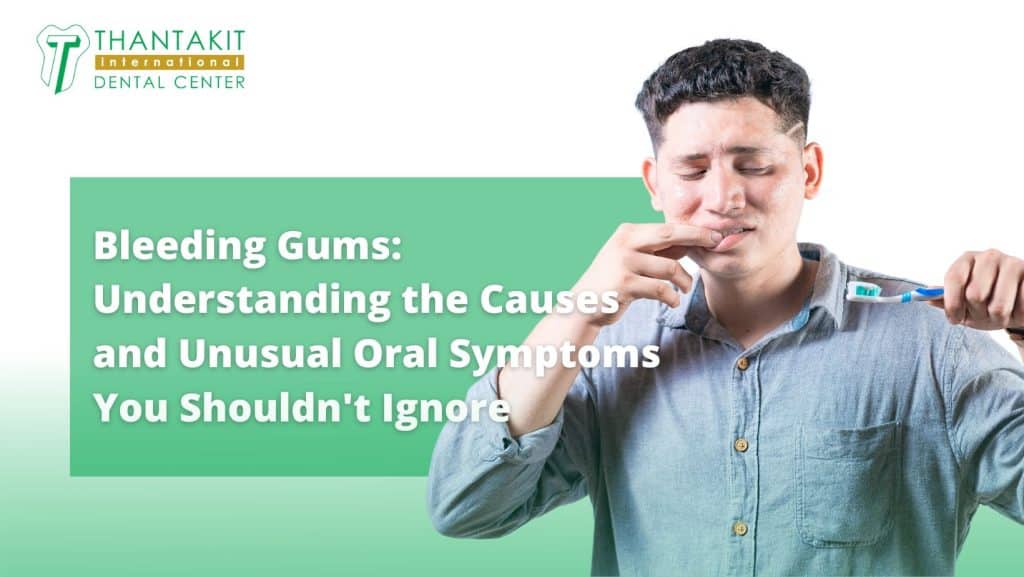While brushing your teeth, you might be alarmed to see blood on the sink after spitting away the toothpaste residue. Gums that bleed can indicate poor gum health and the development of gum disease.
You should investigate the causes of bleeding gums immediately instead of ignoring them entirely in order to get on top of whatever potential condition you’re dealing with.
Dental plaque buildup leading to gingivitis is usually the prime suspect for the issue. However, gum bleeding is also indicative of other diseases like vitamin deficiencies, hormone fluctuations, teeth grinding, and diabetes.
Page Contents
What Does It Mean When You Get Bleeding Gums?
It means something is wrong with your gums. It’s not supposed to easily bleed if it’s healthy. You need to floss pretty hard to get your gums bleeding at all, actually.
More often than not, bleeding gums is a symptom that you have gingivitis or some other similar conditions involving gum disease. However, gum bleeding can also indicate you have other oral or bodily issues.
In other words, bleeding gums can be a sign of the following conditions or bad habits:
- Stress.
- Gingivitis.
- Hormone changes.
- Vitamin deficiencies.
- Teeth grinding or bruxism.
- Excessively strong brushing or flossing.
- Blood-clotting disorders like hemophilia.
- Taking medication with bleeding side effects.
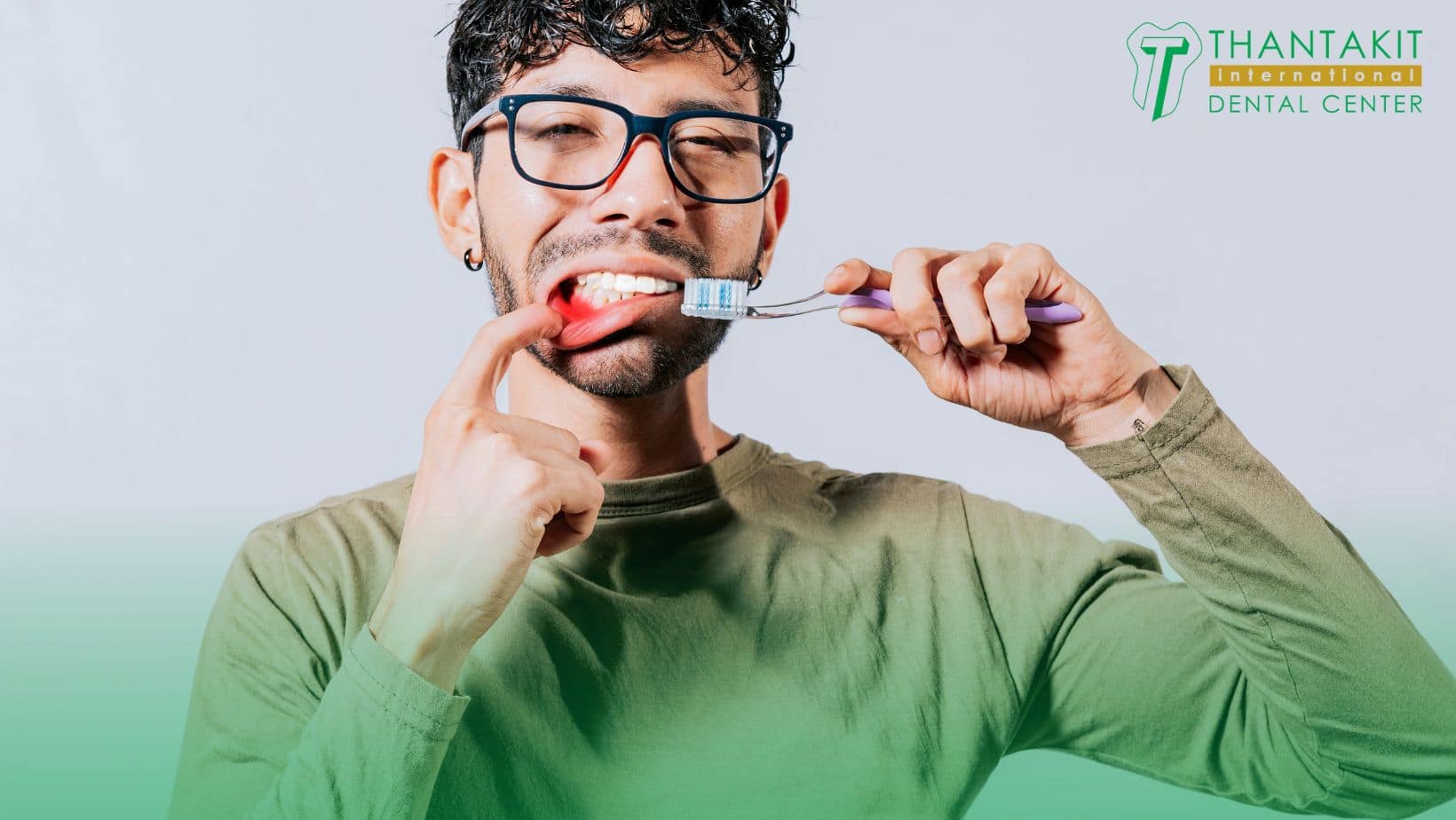
What Happens When You Leave Bleeding Gums Untreated?
Leaving your bleeding gums alone without treatment isn’t ideal because they can worsen over time. This is especially true if they’re actually symptoms of gum diseases like gingivitis (mild) and periodontitis (severe).
Gum disease erodes the bone, tissue, and ligaments anchoring your teeth to your mouth and jaw.
Thus, this continuing infection cycle can lead to other complications like bad breath, loosened or mobile teeth, and tooth loss. It’s the same case if other health issues like diabetes or hemophilia are causing you to bleed from your gums.
Your symptoms will certainly worsen over time if you leave any underlying condition that’s causing them untreated.
Seek dental advice and treatment from your nearest dentist at your most convenient time. You should get the right diagnosis from them so that your gum treatment can begin post-haste.
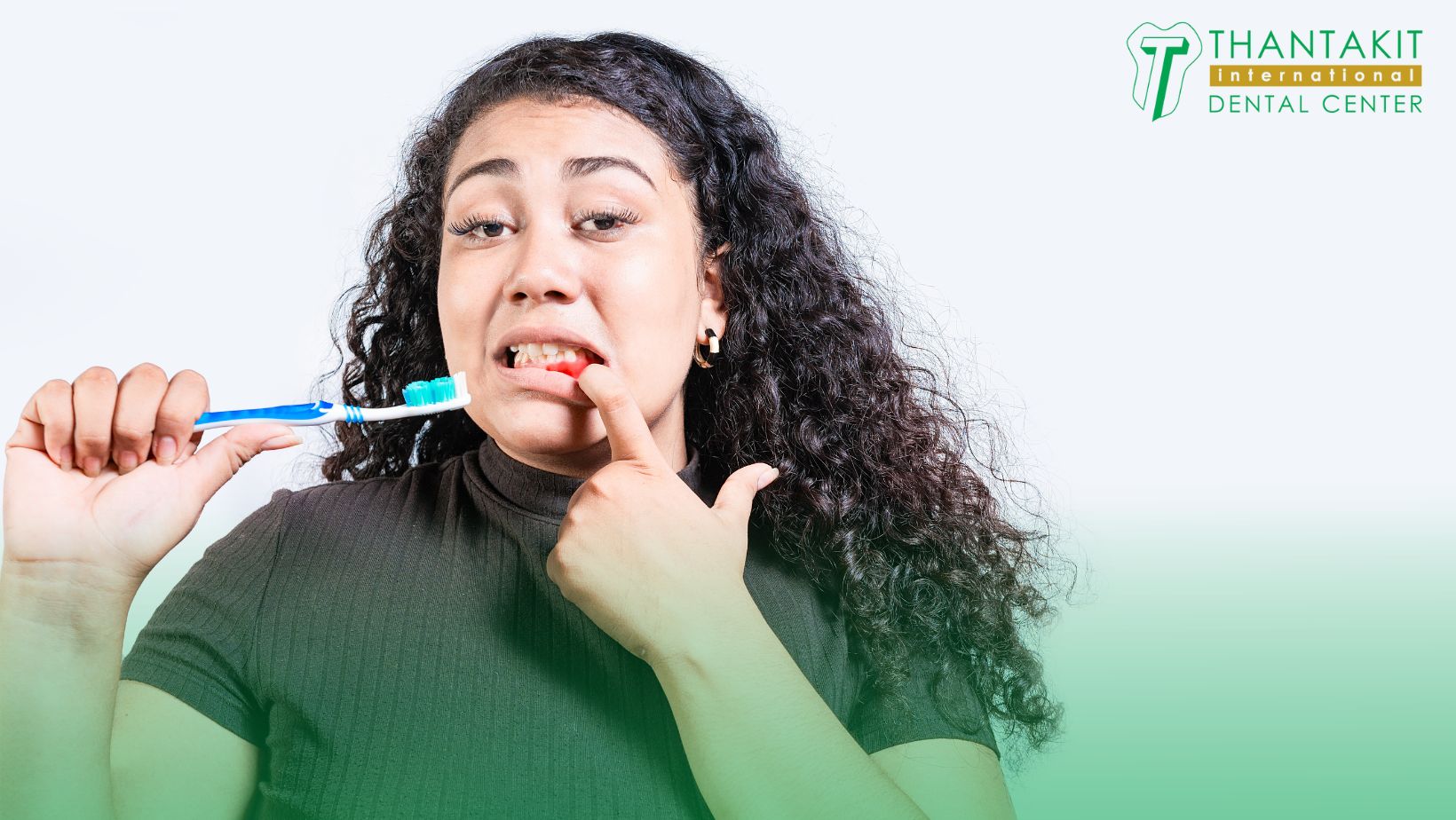
Possible Causes of Your Gums Bleeding
So why do gums bleed? What causes gum bleeding? It’s usually an oral or dental issue more often than not. However, it can also be a symptom of various other illnesses or maladies.
Dental causes of gum bleeding include the following:
- Smoking.
- Poor oral hygiene.
- Gingivitis (early-stage gum disease).
- Trench mouth (severe gum disease).
- Periodontitis (moderate to advanced gum disease).
Other causes of bleeding gums include the following:
- Stress.
- Diabetes.
- Bruxism.
- Leukemia.
- HIV/AIDS.
- Oral herpes.
- Hemophilia.
- Pernicious anemia.
- Thrombocytopenia.
- Vitamin K deficiency.
- Von Willebrand disease.
- Blood-thinning medications (anticoagulants).
- Fluctuating hormone levels caused by menopause, pregnancy, or puberty.
- Mild or severe Vitamin C deficiency. The severest form of this is known as scurvy.
What are the Symptoms of Gum Disease?
You might be suffering from gum disease—whether it’s mild gingivitis or severe periodontal disease—if you have the following symptoms. The worse your gum disease gets, the more complications you’ll have to face.
-
Bleeding Gums: When cleaning your gums, they might end up bleeding altogether. It’s important to remember that this is one of the first signs of gum disease, among other potential conditions.
-
Swollen Gums: Your bacteria-infected gums might also be inflamed, swollen, or sore (mild pain). They might also have a reddish or darker pink hue to them instead of their healthy pink color.
-
Gum Recession: Your gum line might appear like it’s shrinking or being pulled away from your teeth, thus exposing your sensitive tooth roots to plaque, tartar, and bacterial infection leading to tooth loss.
-
Bad Taste and Breath: If every morning you have bad breath and an even worse aftertaste in your mouth to boot, then you might have gum disease. Halitosis (bad breath) is caused by many factors.
You can resolve the foul smell and taste within your mouth with mouthwash, brushing, and flossing. Visit your dentist in case you have persistent bad breath and taste even after improving your oral hygiene regimen.
-
Loose Teeth: Once the tissue holding your teeth in place has sufficiently deteriorated, they’ll eventually fail as your dental support structures. You might even lose your teeth once the gum recession really sets in.
As tooth loss worsens, this may result in irreversible damage. Your teeth might fall out naturally, or your dentist might be forced to remove them. Thankfully, teeth extraction is a routine procedure.
It’s critical that you take the best possible care of your teeth, treating any troubling signs as soon as they appear.
With any luck, you’ll be able to reduce these symptoms and complications early on, thus ensuring you’ll have healthy teeth throughout adulthood.
The Care and Treatment of Bleeding Gums
Dental healthcare providers treat bleeding gums by figuring out the source of the symptom or complication. The underlying cause should be acknowledged and addressed to improve the bleeding gum issue.
The dentist or periodontist (a specialist on gum health) will advise you on which treatment to undergo. Common treatments for gum disease include the following:
- Antibiotics.
- Laser periodontal surgery.
- Improved oral hygiene at home.
- Prophylaxis and in-office dental cleaning.
- Deep dental cleaning through manual root planning and teeth scaling.
- Osseous surgery or size reduction of the empty pockets around the teeth.
If you have bleeding gums despite not suffering from gingivitis or periodontitis, your dentist will need to narrow down their cause.
They might recommend tests to see if you instead have underlying health conditions like vitamin deficiencies, blood-clotting disorders, or diabetes. After receiving your prognosis, the dentist will give you the right treatment to address the cause of your bleeding gums issue.

What Can You Do About Preventing Bleeding Gums?
Can you prevent your gums from bleeding from the start? Absolutely. You can at the very least lower your chances for them.
Observing basic dental hygiene and habitual oral maintenance will do wonders for bleeding gums prevention and gum disease treatment.
Aside from practicing good oral hygiene at home, you should also avoid actions that can cause gums to bleed, like flossing or brushing too hard (brush gently, rinse thoroughly). You can also use an electric toothbrush to regulate brushing strength.
You should also visit your dentist regularly—at least once or twice a year—to clean your teeth and observe the condition of your mouth.
Take note of other causes of bleeding gums, like hormone changes, leukemia, diabetes, teeth grinding, and blood-clotting disorders. You might need a general practitioner doctor or specialist to handle and treat those particular conditions.
Home Remedies for Resolving Bleeding Gums
If your gums bleed heavily and they don’t improve within two weeks’ time, schedule a dentist appointment as soon as possible. Dentists can determine whether it’s gingivitis or periodontitis that’s causing your symptoms.
Meanwhile, here are some ways you can use to address the issue at home before going to the dentist.
- Avoid smoking.
- Floss once daily.
- Brush twice or thrice a day.
- Use an antibacterial mouthwash.
- Rinse your mouth with warm saltwater.
- Use a soft-bristled or electric toothbrush.
These home remedies can serve as first-aid that prevents the bleeding and pain from worsening.

The Truths about Bleeding Gums to Keep in Mind
If your gums randomly bleed or bleed whenever you brush or floss, talk to your dentist ASAP. To save your gums and teeth, you should keep in mind the following truths about bleeding gums.
-
Bleeding Gums are Commonplace: It’s not unusual to suffer from bleeding gums. If they occur far too often to you as of late, you might be one of millions of adults suffering from some form of gum disease.
Regardless, 1 in 4 adults worldwide has some form of gum disease, whether it’s mild to moderate gingivitis or severe periodontitis. Unfortunately, many people are unaware they could get bleeding gums by letting plaque remain uncleaned.
-
Bleeding Gums Have Many Causes: Gum disease can be mild gingivitis that you can reverse with proper treatment and regular dental hygiene. Or it can also be severe periodontal disease, known medically as periodontitis.
In fact, periodontitis isn’t just one condition and symptom that requires a mere one-size-fits-all treatment.
Gum disease is a series of conditions with their own respective stages of severity and symptoms. Bleeding gums is actually one of the milder symptoms along with gum swelling.
However, you shouldn’t ignore gum disease either because it’s a preventable disease that can do permanent damage to your teeth and gums if left unchecked.
-
Yes, It’s Perfectly Preventable: One of the easiest (but also somehow the most tedious) ways of mitigating bleeding gums and gingivitis/periodontitis risk is by regularly brushing your teeth twice a day (after lunch and before bedtime).
The progression of gum disease can be staved off from the start, particularly in the early stages where you’re only dealing with inflamed, easily irritated gums.
Naturally, you’ll have to pay more expensive in-office treatments like scaling and root planing to address more advanced symptoms like pocket formation and receding gums. Fortunately, gum disease doesn’t worsen overnight.
Every new stage of gum disease gives you a window of opportunity to improve your gum health and preserve your teeth.
However, if it gets worse enough, you might need to outright put on expensive false teeth, bridges, or even All-on-6 dental implants with crowns!
-
Please Don’t Ignore the Symptoms: The average person literally cannot afford to ignore the symptoms of gingivitis and periodontitis. The more they leave their bleeding gums unchecked, the more expensive their future treatment will get.
It all starts with plaque removal. The more you brush your teeth, the less likely plaque can worsen to tartar and gum infection.
In turn, the sooner you resolve your gum troubles, the easier and cheaper the treatment will become.
Prevention, as always, is superior to cures and treatments, so maintain a regular oral health regimen for your own good.
Be aware of how big of a red flag bleeding gums are. Don’t ignore its worsening state, because this will only cause your gum disease (or other underlying conditions) to worsen and result in grave consequences.
Bleeding gums can initially be painless until it becomes worse enough to not be so painless anymore, especially when you floss. Don’t allow your gum bleeding to get that bad for your own good!
When Should You Call the Dentist for Bleeding Gum Issues?
You should see a dental healthcare provider or specialist if the gum bleeding persists. The issue should go away on its own, but if your gums keep bleeding within a two-week period, talk to your dentist for more details.
He will either suggest therapy for another underlying disease or immediate treatment for bleeding gums complications (such as a thorough dental cleaning or prophylaxis).
-
What Deficiency Can Cause Bleeding Gums? Gum bleeding may be a sign of a vitamin K or C deficiency. This requires a change in diet or taking vitamin supplements to compensate for your issues.
If your bleeding gums are caused by some other condition like diabetes, hemophilia, or HIV/AIDS, then it becomes an issue beyond the expertise of a dentist. Consult with the appropriate healthcare professional to deal with such diseases.
-
Why Should Bleeding Gums Be a Cause of Concern? If you accidentally bite into something hard, like bone or tough meats, this can cause your sensitive gums to bleed. Normally, this is no cause for alarm.
However, if your gums frequently bleed at random and there’s no obvious reason that explains why, this may be a sign of you having gum disease or another underlying medical issue.
See a dentist if your gums bleed for more than two weeks or if you experience other symptoms like swollen gums or bad breath.
-
How Long Can You Leave Bleeding Gums Alone? Hopefully not long. Like with plaque or tartar, the longer you ignore your bleeding gums, the worse they will get, resulting in the slippery slope of you losing all your teeth!
Most bleeding gums don’t require medical attention right away. Again, if your bleeding persists for longer than two weeks, you should consult a dentist or dental specialist. Most underlying issues could get worse if you wait.

Choose the Thantakit Dental Center for Affordable Dental Care Abroad
When selecting the best dental center for you, it takes more than just an educated guess. Don’t forget that the best dental clinic or office for you should ensure your good oral health by providing you with a stress-free or enjoyable dental experience overall.
Choosing a dental healthcare center with the most complete dental treatment offerings in one location should be your priority when dealing with bleeding gums.
If your local dentist can’t meet your dental needs due to high treatment cost or incomplete insurance coverage, the good news is that there’s a wonderful alternative for you: getting a dental tour abroad at the Thantakit Dental Center in Thailand.
The beauty of a Thailand dental tour to Thantakit is the fact that the center has services so affordable that you’ll save money from their international-grade treatments even if you take travel expenses into account.
Look for Dental Help That You Can Trust
When it comes to the resolution of bleeding gums and gum disease, avail only the best dental treatments locally and abroad.
By considering factors such as reputation, experience, credentials, services provided, the technology available, cleanliness, location, and payment options, you can make a rather solid decision on your preferred dental center with the utmost confidence.
Don’t hesitate to avail of the dental tours provided by the Thantakit Dental Center of Thailand for any advanced or normally expensive dental services, including affordable dental care, orthodontics, prosthodontics, and cosmetic dentistry.
Thantakit International Dental Center is Thailand’s longest established dental center. Situated in Bangkok, our clinic is renowned across the world as a destination for world-class dentistry, with most of our patients flying to us from Australia.
Please contact us today and get a FREE dental consultation.



